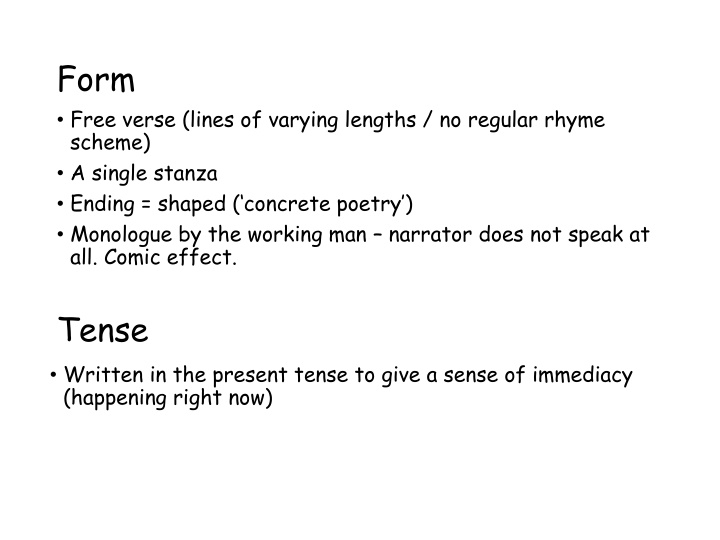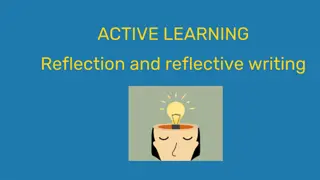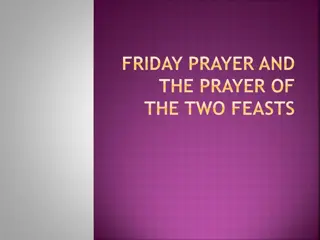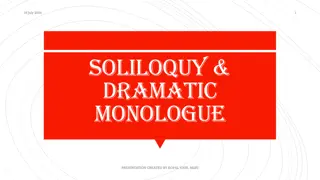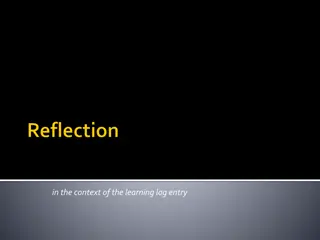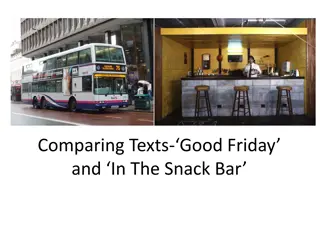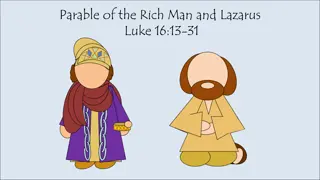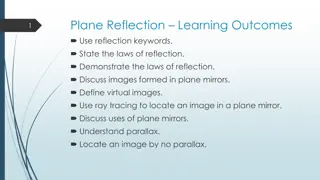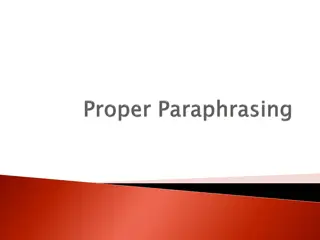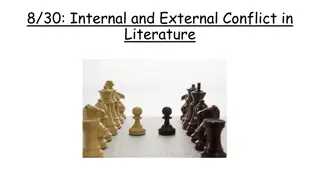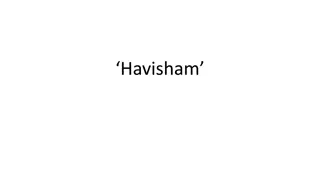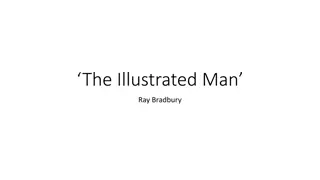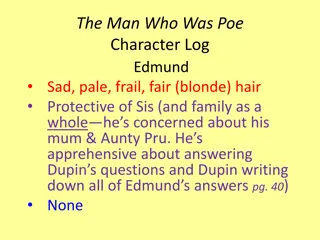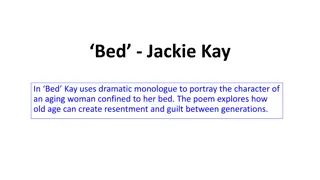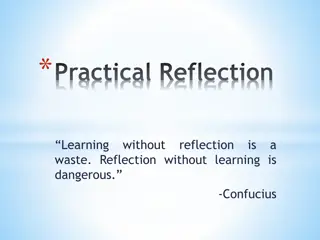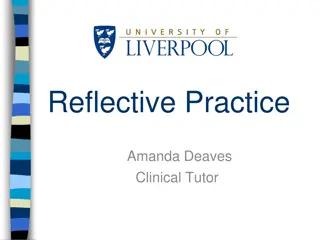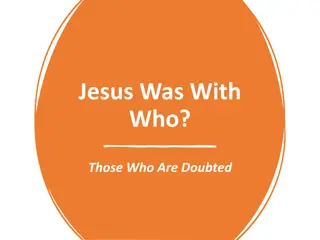The Working Man's Monologue: Good Friday Reflection
The poem is a comic yet poignant monologue by a working man narrator reflecting on the significance of Good Friday, exploring themes of social class, ignorance, and religion. The concrete poetry format adds visual depth to the narrative, capturing the immediacy of the man's musings on his lack of education and the disconnect with religious observances.
Download Presentation

Please find below an Image/Link to download the presentation.
The content on the website is provided AS IS for your information and personal use only. It may not be sold, licensed, or shared on other websites without obtaining consent from the author.If you encounter any issues during the download, it is possible that the publisher has removed the file from their server.
You are allowed to download the files provided on this website for personal or commercial use, subject to the condition that they are used lawfully. All files are the property of their respective owners.
The content on the website is provided AS IS for your information and personal use only. It may not be sold, licensed, or shared on other websites without obtaining consent from the author.
E N D
Presentation Transcript
Form Free verse (lines of varying lengths / no regular rhyme scheme) A single stanza Ending = shaped ( concrete poetry ) Monologue by the working man narrator does not speak at all. Comic effect. Tense Written in the present tense to give a sense of immediacy (happening right now)
Religious background: Good Friday Friday before Easter Sunday. Commemorates execution of Jesus by crucifixion. Good Friday = day of mourning in church. Special Good Friday services commemorate Jesus' suffering and death on the cross In some countries: Good Friday processions re-enactments of the Crucifixion.
Religious Background: Easter Sunday In Christianity Easter Sunday marks Jesus' resurrection. After Friday crucifixion: body was taken down from the cross buried in a cave tomb Tomb guarded by Roman Soldiers Enormous stone put over the entrance, so no-one could steal body. Sunday: Mary Magdalene visited tomb found stone had been moved Jesus' body had gone. Jesus himself seen for forty days afterwards by many of is followers Known as the Resurrection .
Themes: Social class Social class and its relationship to education Difference in status between working man and narrator the working man has nae education (19/20) he s jist bliddy ignorant (22) Being working class is something that he associates not with pride but with ignorance and lack of intellect The narrator does not make the same judgement
Themes: Religion Title refers to religious holiday. For certain members of society, Christian tradition does not play a significant part For man enjoying a day off the religious significance of the day = relatively unimportant. Working man puts this lack of knowledge down to ignorance. 1960s = move to increasingly secular society.
Title: Religious Allusion * *Allusion = reference to something outside the poem (in this case religion) Title establishes the religious theme. Good Friday is the name Christians give to the day on which Christ was crucified.
Three oclock. The bus lurches Subtle biblical reference Christ died at 3pm The sun shone after he died Suggests physical clumsiness slightly comical Real, named location: poem = slice of reality Glasgow dialect Dashes (casesura) rhythms of realistic speech Drunk man = kind / human round into the sun. D s this go he flops beside me 'right along Bath Street? - Oh tha's, tha's all right, see I've got to get some Easter eggs for the kiddies.
Ive had a wee drink, ye understand Dashes also show working man is rambling pauses where narrator could speak but does not (humour?). Aware of what day it is feels guilty see x 4 understand x3 say/saying x2 mean x2 Word choice and repetition: the working man is desperate to be understood ye ll maybe think it s a funny day to be celebrating well, no, but ye see I wasny working, and I like to celebrate when I m no working I don t say it s right Lines 6-10
I'm no saying it's right, ye understand - ye understand? Working man does not condone (defend) own behaviour Does not want to be a boring drunk (comical because the narrator does not speak) Confused broken sentences (use of dashes) But anyway tha s the way I look at it I m no boring you, eh? ye see today, take today, I don t know what today s in aid of, whether Christ was crucified or was he Lines 11-15
rose fae the dead like, see what I mean? Authentic dialect. Political: serious topic discussed in dialect Contrast between narrator and w. man class barrier perceived by w. man W. man s background = source of shame / sense of inferiority Repetition / incoherence* (*making no sense) reveals w. man s emotion regrets his own lack of learning You re an educatit man, you can tell me - Aye, well. There ye are. It s been seen time and again, the working man has nae education, he jist canny jist Lines 16-20
hasny got it, know what I mean, Repetition reinforces w. man s sense of certainty about his argument / conclusion Brakes / lunges / swings = active verbs. Add a sense of movement / reality to the poem. Rhyming couplet humorous effect he s jist bliddy ignorant Christ aye, bliddy ignorant. Well ' The bus brakes violently, he lunges for the stair, swings down off, into the sun for his Easter eggs, Lines 21-25
on very Layout gives visual impression of w. man getting off the bus unsteadily nearly steady legs. Line 26
